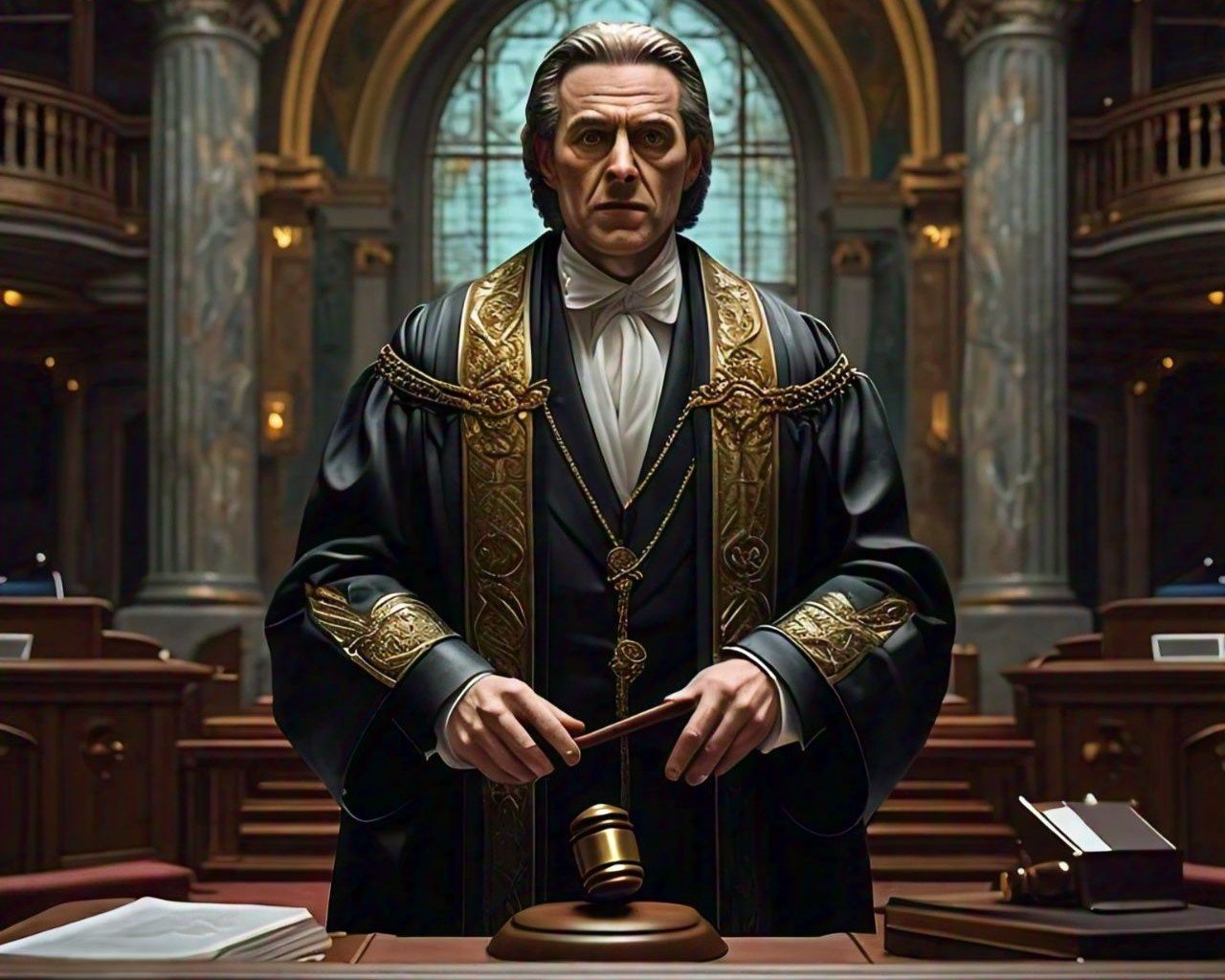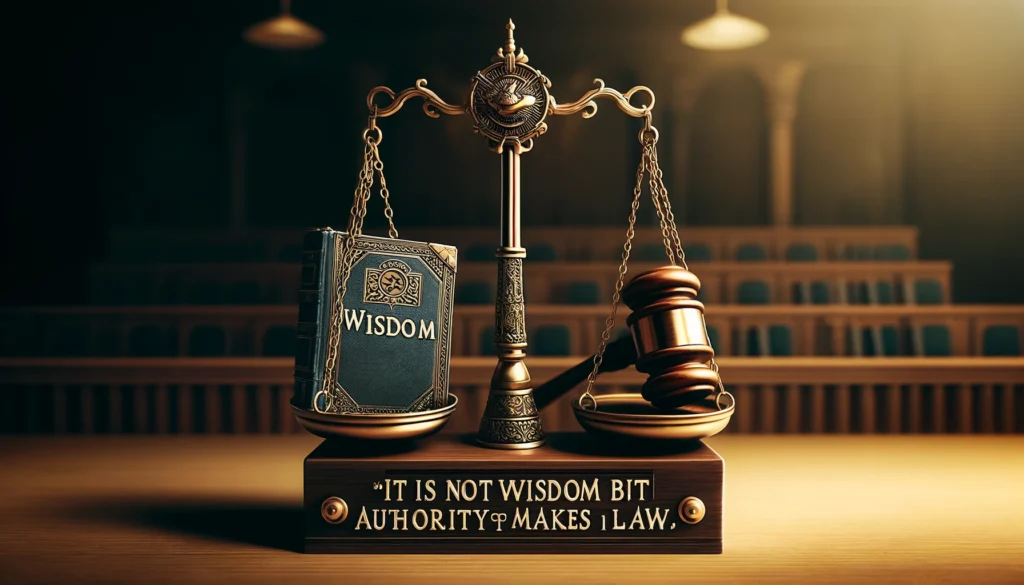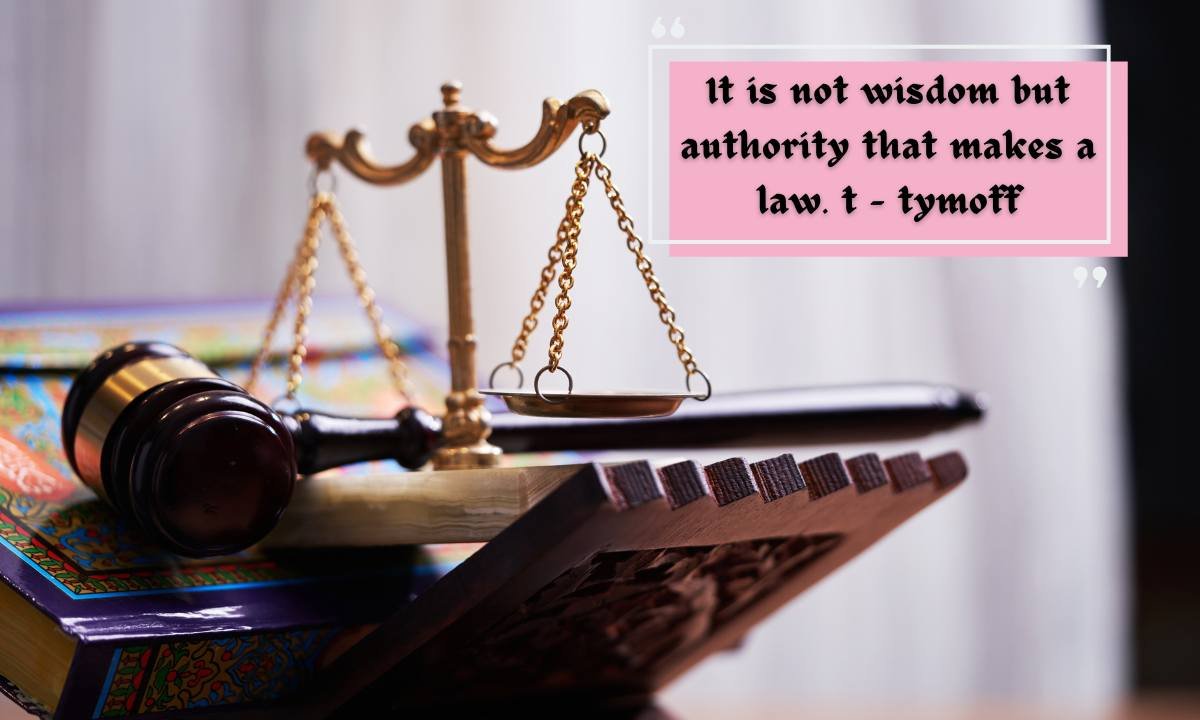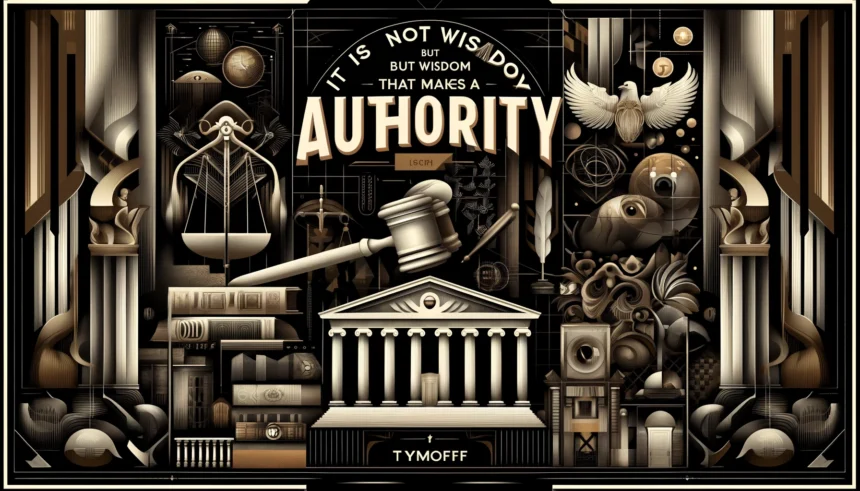Random Stories
It is not wisdom but authority that makes a law. t – Tymoff

Introduction to the quote by Tymoff
Laws shape our society, guide behavior, and establish order. But have you ever stopped considering the foundation of these laws? The quote It is not wisdom but authority that makes a law. t – Tymoff challenges us to reflect on the true nature of lawmaking. It raises an important question: Are we governed more by wise principles or by those in power? This thought-provoking statement leads us down a path of exploration into how authority influences legislation. Let’s dive deeper into this intriguing subject and uncover what it means for our lives and society.
Examining the Role of Authority in Lawmaking: It is Not Wisdom but Authority That Makes a Law. t – Tymoff
The quote by Tymoff highlights a crucial aspect of lawmaking: authority often overshadows wisdom. When laws are established, the power structures in place dictate what becomes legislation, not necessarily the moral or ethical implications.
Authority figures wield significant influence over societal norms and regulations. They can create laws based on their interests rather than collective well-being. This dynamic raises questions about justice and equity within legal systems.
Consider historical examples where oppressive regimes enacted rules without consideration for fairness. These laws dictated behavior but were rooted in control rather than sound judgment.
Such scenarios illustrate a troubling reality—laws can emerge from authoritarian impulses instead of thoughtful deliberation. It begs the question: how do we ensure that those with authority prioritize wisdom alongside their power?
Explanation of the meaning behind the quote
The quote It is not wisdom but authority that makes a law. t – Tymoff highlights a crucial distinction in how laws are created and upheld. This statement suggests that the power to legislate does not necessarily stem from a deep understanding of justice or ethics.
Instead, it emphasizes the role of those in positions of power. Lawmakers often rely on their authority to define what is lawful, regardless of whether these laws reflect moral reasoning or societal needs.
This disconnect can lead to regulations that lack insight or foresight. Authority may dictate actions without considering fairness or equity. Thus, while laws can maintain order, they do not inherently guarantee righteousness.
Understanding this dynamic invites us to critically evaluate our legal systems and question who holds the reins when crafting rules meant to govern society.
The role of authority in creating and enforcing laws
Authority plays a pivotal role in the creation and enforcement of laws. It provides the structure within which legal systems operate. When a governing body asserts its authority, it establishes rules that society must follow.
The legitimacy of these laws often stems from their source. Governments, institutions, and leaders can legislate based on their status. Even without wisdom, authority can still dictate what becomes law.
Enforcement falls under this same umbrella of authority. Law enforcement agencies act as enforcers of these rules, ensuring compliance among citizens. Their actions reflect the will of those who create the laws.
However, unchecked or misused authority can lead to unjust legislation imposed on people without regard for fairness or equity. The dynamics between power and legality are complex and need careful navigation for effective governance.
Examples of laws created without wisdom but based on authority
Throughout history, many laws have emerged not from thoughtful consideration but from sheer authority. A notable example is Prohibition in the United States during the 1920s. The government aimed to curb alcohol consumption without addressing its cultural significance or potential consequences.
Similarly, laws enforcing segregation were based on misguided perceptions of racial superiority. They created deep societal divides and immense suffering without grounding in moral wisdom.
Another instance is the infamous “War on Drugs.” Policies enacted by those in power often ignored evidence and community needs, focusing instead on punitive measures that disproportionately affected marginalized groups.
These examples highlight a troubling pattern where authority overshadows reasoned debate. When lawmakers fail to incorporate wisdom into their decisions, society pays the price for these missteps.
The consequences of blindly following authority in lawmaking
Blindly following authority in lawmaking can lead to dire consequences. When laws are created without critical examination, they often reflect the biases and interests of those in power rather than the needs of society.
Take, for example, discriminatory laws that arise from authoritarian regimes. These regulations may serve specific groups while marginalizing others. The impact is profound: social inequality deepens, trust erodes, and unrest becomes inevitable.
Moreover, when citizens do not question authority, a dangerous cycle emerges. Laws become tools for oppression rather than instruments of justice. It leads to losing democratic values as people lose faith in influencing change.
The ramifications extend beyond individual lives; communities suffer, too. A populace that accepts unjust laws undermines its sovereignty and potential for progress. Healthy societies thrive on accountability and dialogue between citizens and their leaders—true justice must prevail.
The importance of wisdom in creating fair and just laws
Wisdom plays a crucial role in formulating laws that resonate with justice. It encourages lawmakers to consider the implications of their decisions.
When wisdom guides legislation, it fosters empathy and understanding. This perspective allows for diverse voices to be heard, ensuring that laws are not merely authoritative edicts but reflect societal values.
Furthermore, wise lawmaking promotes flexibility. It recognizes that circumstances change and adaptations may be necessary. Rigid laws can lead to injustices, while those shaped by thoughtful deliberation can evolve alongside society’s needs.
Incorporating wisdom into legal frameworks leads to more equitable outcomes. When wisdom is at play in the legislative process, fairness becomes a priority rather than an afterthought. This alignment helps cultivate trust between citizens and their governing bodies, strengthening social cohesion over time.
Conclusion: Balancing authority and wisdom in lawmaking for a better society
The interplay between authority and wisdom in lawmaking is crucial. Authority provides the framework for creating and enforcing laws, ensuring order and compliance. However, when authority overshadows wisdom, the potential for injustice increases.
Laws that emerge solely from authoritative mandates can disregard moral values or societal needs. This imbalance often leads to regulations that may be effective on paper but fail to serve justice in practice. History offers numerous examples where blind adherence to authority has resulted in oppressive laws.
Conversely, infusing wisdom into the legislative process promotes more equitable outcomes. Wisdom encourages lawmakers to consider diverse perspectives, fostering an environment where justice thrives over mere obedience.
A balanced approach combines both elements—ensuring laws are not just a product of power but also thoughtful deliberation rooted in ethics and community welfare. Striving for this balance will pave the way toward a society where laws reflect authority, fairness, and understanding.
Creating such harmony requires ongoing dialogue among lawmakers, experts, and citizens—a collaborative effort to craft legal frameworks that honor human dignity while maintaining social order. The goal is clear: build a legal system where authority serves as a vehicle for wise governance rather than its master.
Stay connected with Ms. Magazine for the latest empowering insights and updates that are worth your attention!








